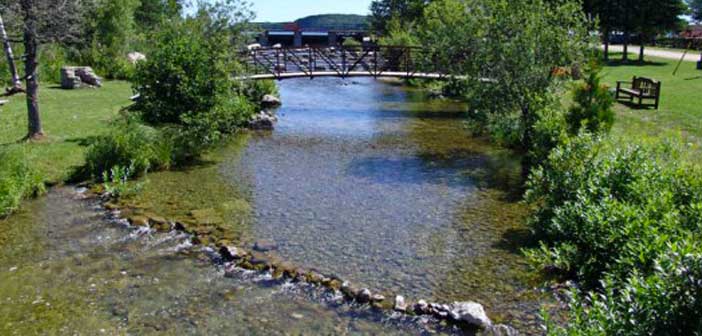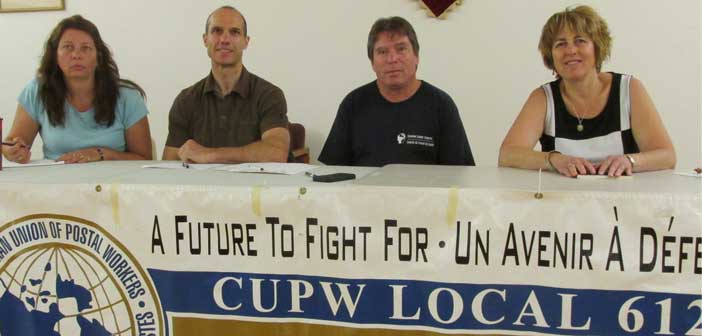KING CITY—Restore Our Water International (ROWI) is lobbying John Baird, the Canadian federal Minister for Foreign Affairs, Trade and Development, to ‘get moving’ on the advice to governments by the International Joint Commission (IJC) recommending further investigation of structural options to restore water levels in Lakes Michigan and Huron.
“ROWI is an alliance of American and Canadian organizations concerned about the dire economic and ecological impacts of the low water crisis on Lakes Michigan and Huron and on Georgian Bay,” states Mary Muter, vice-chair of ROWI, in a letter to Mr. Baird. “ROWI currently represents at least 15,000 shoreline owners and commercial interests across these water bodies. The mission of ROWI is to restore the natural ranges of water levels on the Great Lakes and flows in their interconnecting waterways that have been altered by human intervention.”
“The past winter of record cold temperatures with heavy snow cover that resulted in a significant spring runoff has been followed by elevated precipitation across Lakes Superior, Michigan and Huron/Georgian Bay. The welcome rise in water levels has brought some relief, but the public understands that this is just a weather-related blip,” said Ms. Muter. “We know the public’s reaction from the many meetings we have held over this summer around the (Georgian) Bay.”
Ms. Muter explained that the elevated levels are also a result of increased discharge from Lake Superior due to IJC orders requiring increased outflow whenever Lake Superior is above its long-term average and Lakes Michigan and Huron are below their long-term average. “The public is aware that all this increased supply is masking the increased outflow through the St. Clair River. Lake Michigan and Huron levels will fall again when more normal weather patterns return.”
“We are aware that there is broad support for the April 2013 IJC advice, not only from the general public but also from the Great Lakes mayors and from the members of Parliament whose ridings are on Georgian Bay, including two cabinet ministers—Tony Clement and Kellie Leitch,” continued Ms. Muter.
Ms. Muter stated, “in the United States the US Senate has confirmed that the US Army Corps of Engineers (USACE) has authorization and initial funding to proceed with reviewing their past St. Clair River compensation design in light of current knowledge and technologies. There is an outstanding agreement between Canada and the United States that required St. Clair River compensation measures as a condition of the 1962 dredging. It appears that the United States is prepared to proceed. Where Canada officially stands on this important issue is, however, unknown. We believe you will agree that Canada needs to play a role. We understand that our silence is not appreciated by the Americans and is really upsetting such Canadian citizens and the 650 people who attended the IJC hearings on this concern in the town of Midland in 2012.”
“The increase in the outflow of Lake Huron through the St. Clair River may be even greater by now because of further erosion of the riverbed. The USACE has new 2012 bathymetry measurements that can be compared to 2005 bathymetry data. There is no reason to delay decision-making,” continued Ms. Muter.
“The sooner Canada engages and supports the IJC’s advice, the better opportunity we will have to promote Canadian interests in this project. These are binational waters, and so it is critical that Canada be equally involved in all decisions about their use and protection,” said Ms. Muter.
She pointed out, “it has been 16 months since the IJC provided their advice to our governments. The time to respond positively is now if Canada is to respect the outstanding agreement for St. Clair River compensation and to be able to work with the USACE as they proceed to determine the best compensation design.”
“Our team of engineers and biologists have been working on this concern for over 10 years and are anxious that the water levels issue not be overlooked by Canada as it unfortunately was in the 1970s. The fish and wildlife impacted by the 1999-2013 low water levels have not yet recovered and will once more have difficulty accessing wetlands when the water levels fall again as more normal weather conditions return. We need some ability to retain water in all the Great Lakes, not just in Superior and Ontario. Restoration of the St. Clair River is the answer, and that will be our best defence against possible negative impacts of climate change. It will also repair the damage to the St. Clair River’s bed caused by over 100 years of human alterations. Let’s fix the problem now before it is too late.”





